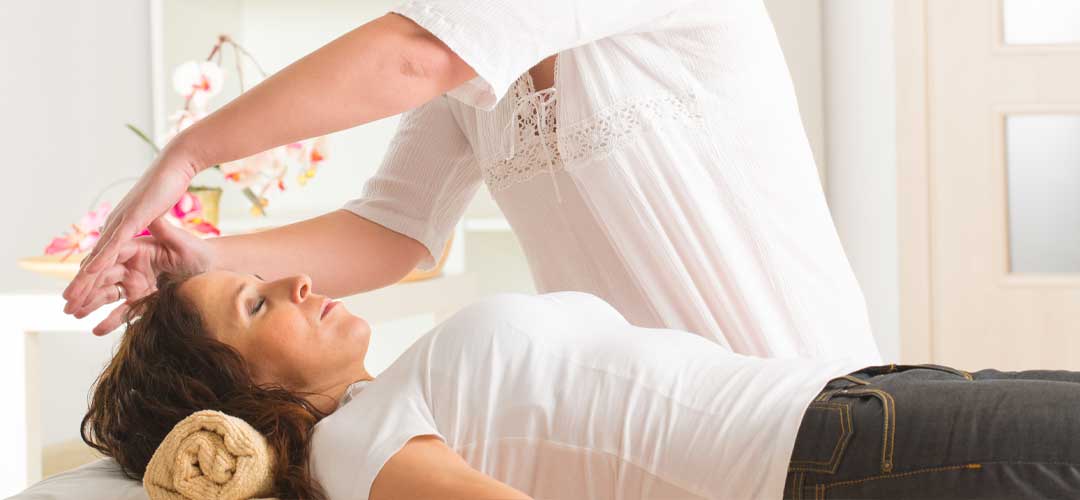
In recent years, Reiki has surged in popularity across the UK, with growing numbers of people turning to this gentle, non-invasive healing technique as a complementary approach to wellness.
From spa retreats in the Cotswolds to Reiki circles in London, the energy healing movement is attracting individuals seeking holistic support for stress relief, emotional balance, and spiritual wellbeing.
But what is Reiki exactly, and why is it gaining momentum now? In this article, we explore the origins of Reiki, how it works, the potential benefits, and why this ancient practice is becoming a go-to therapy for many in the UK.
What Is Reiki?
Reiki (pronounced ray-key) is a form of energy healing that originated in Japan in the early 20th century. The word Reiki is derived from two Japanese words: Rei, meaning “universal life,” and Ki, meaning “energy.” This practice is based on the belief that a universal life force energy flows through all living beings. When this energy becomes blocked or depleted, it may lead to physical or emotional imbalances.
During a Reiki session, a trained practitioner channels this energy into the client’s body through gentle touch or by hovering their hands slightly above the body. The goal is to restore energetic balance, promote relaxation, and support the body’s natural ability to heal itself.
How Does Reiki Work?
Reiki is a non-invasive, complementary therapy that works with the body’s energy system. The practitioner acts as a conduit for universal energy, allowing it to flow through them and into the recipient. While scientific understanding of Reiki remains limited, many proponents believe that it helps to release energetic blockages, reduce stress, and stimulate the parasympathetic nervous system, encouraging a deep state of rest.
A typical Reiki session lasts between 45 minutes and an hour. Clients usually lie fully clothed on a treatment table, often accompanied by soothing music, low lighting, and calming aromas to create a peaceful environment. Sensations during a session vary, with some people reporting warmth, tingling, or a sense of emotional release.
What Are the Benefits of Reiki?
Although Reiki is not a replacement for medical treatment, it is increasingly recognised as a supportive therapy for a range of physical and emotional issues. Commonly reported benefits of Reiki include:
-
Reduced stress and anxiety: Reiki may promote deep relaxation, helping to reduce cortisol levels and enhance a sense of calm.
-
Improved sleep quality: Many clients experience better sleep patterns following regular sessions.
-
Emotional healing: Reiki is often used to release emotional blockages, grief, or trauma.
-
Pain relief: Some studies suggest Reiki may reduce pain perception and improve comfort in individuals with chronic pain.
Enhanced overall wellbeing: Reiki may boost feelings of positivity, clarity, and inner peace.
Reiki in the UK: A Growing Trend
Interest in Reiki across the UK has grown significantly in recent years, fuelled by the public’s increasing openness to holistic therapies, wellness trends, and spiritual self-care. According to the Complementary and Natural Healthcare Council (CNHC), more practitioners are becoming professionally registered, and Reiki is now offered in some NHS hospitals and hospices as part of integrated care programmes. The rise of Reiki in the UK is also driven by:
-
Wellness tourism: Retreats and wellness centres now frequently include Reiki as part of their offerings.
-
Mental health awareness: As more people seek natural stress relief and emotional support, Reiki is emerging as a popular choice.
-
Accessible training: Online and in-person Reiki training courses make it easy for anyone to learn the practice for personal or professional use.
Is Reiki Safe?
Reiki is considered a safe, gentle, and non-invasive therapy. It is suitable for people of all ages, including children and the elderly, and can be used alongside conventional treatments. Because Reiki does not involve any physical manipulation or ingestion of substances, the risk of adverse effects is extremely low.
That said, Reiki is a complementary therapy, not a substitute for medical care. It is always recommended to consult a healthcare professional for any serious or ongoing health concerns.

How to Find a Reiki Practitioner in the UK
If you're interested in trying Reiki, it’s important to find a qualified and insured practitioner. Look for practitioners who are registered with reputable professional bodies such as:
- The Reiki Guild
-
The UK Reiki Federation
-
The Reiki Association
-
The Complementary and Natural Healthcare Council (CNHC)
These organisations set standards for ethical practice and continuing professional development, giving clients confidence in the quality of care they receive.
Is Reiki Right for You?
Reiki may be particularly beneficial for those seeking:
-
Natural stress and anxiety relief
-
Emotional balance and grounding
-
Support during times of change or grief
-
Complementary healing for chronic health conditions
-
A deeper connection to inner peace and spiritual growth
Whether you're new to energy healing or a seasoned wellness enthusiast, Reiki offers a gentle path to restoring balance and harmony in mind, body, and spirit.
Final Thoughts
As holistic health continues to gain traction in the UK, Reiki has carved out a strong presence as a trusted and accessible healing modality. With its roots in ancient wisdom and growing evidence of therapeutic benefits, Reiki aligns beautifully with today’s demand for mindful living, stress relief, and holistic self-care.
Whether you’re curious about energy healing or seeking a new tool for emotional wellbeing, exploring Reiki could be a transformative step towards greater harmony and inner peace. Encouragingly, ongoing research is beginning to explore Reiki within the context of conventional medicine, with some hospitals and clinical settings now integrating it as a complementary therapy, highlighting its potential role in future integrative healthcare approaches.
Disclaimer:
Information and other content provided in Lily & Loaf blogs should not be construed as medical advice and should not be considered a substitute for professional medical expertise. If you have any medical concerns, you should consult with your health care provider.





